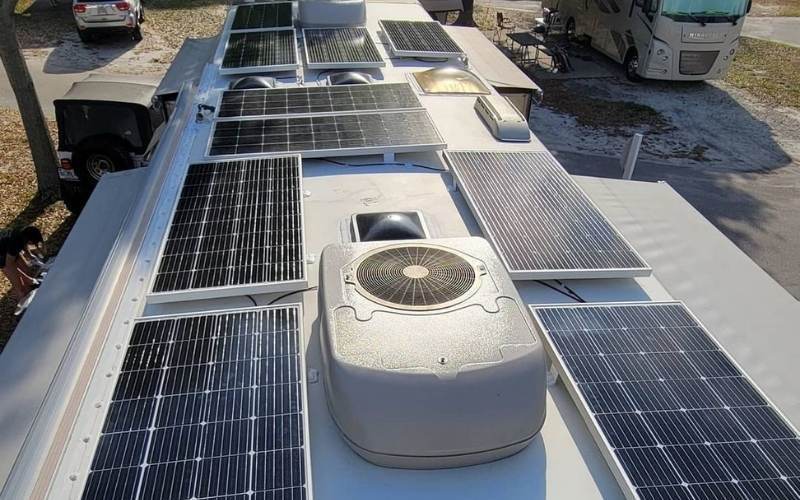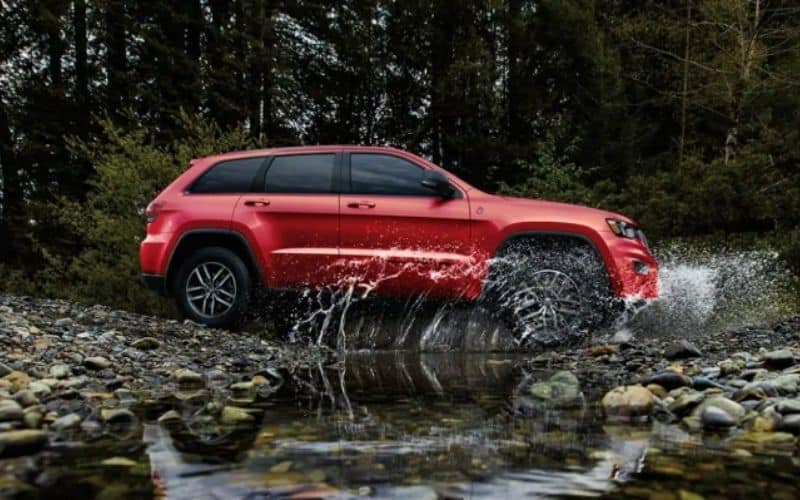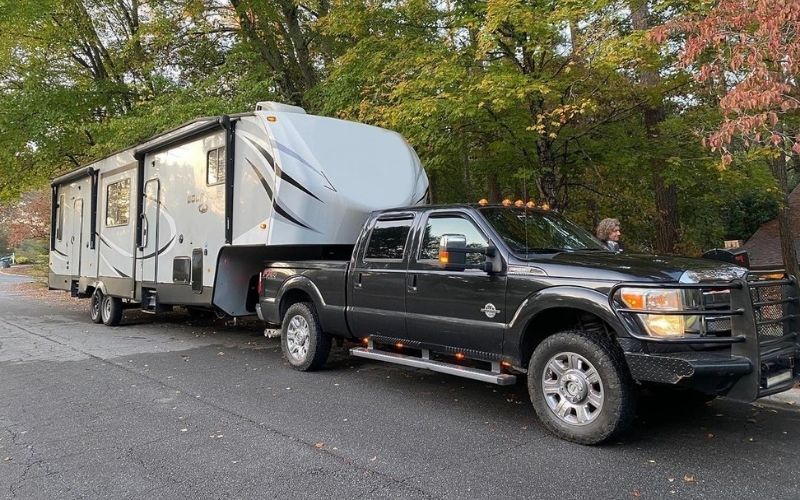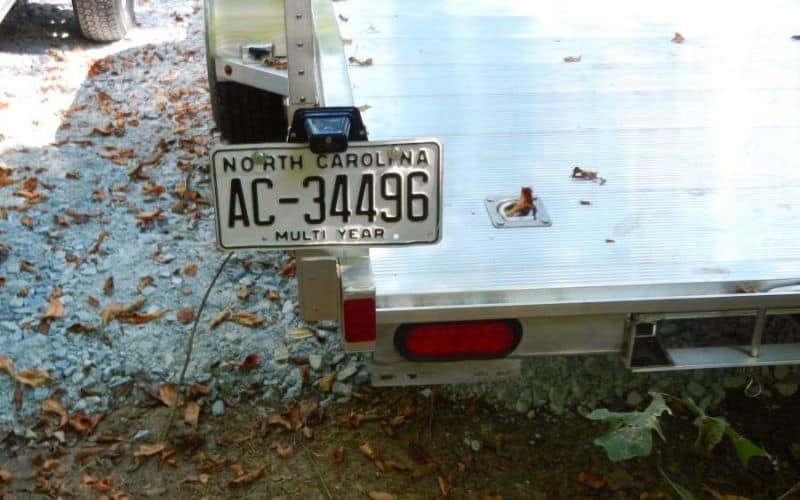We all want to make the most out of our time on the road. Some of the best camping spots are miles away from the nearest shore power or gas station.
To get further out there, you may find yourself considering solar energy for your RV.
Solar technology is improving and becoming more accessible every year. The market is flush with portable Solar panels, and high-tech battery controllers allow you to monitor your consumption from your smartphone.
However, The benefits don’t make the power source fool-proof. RV Solar systems require an expensive investment and hours of complicated installation, all for a rainy day to leave you powerless.
We find that although the RV solar system isn’t a perfect solution, installing RV solar power is a worthwhile investment to improve your experience if you plan on boondocking. If you have less intensive portable energy demands or want to power high-energy appliances, you may be better off looking elsewhere for your energy needs.
There isn’t one power system that’s right for everyone. Today, we’ll walk you through the ins and outs of RV solar power setups so you can decide if adding a solar panels are actually worth the money.
Benefits Of Installing Solar Panels For RV/Trailers
There’s plenty to like about RV solar power. Every panel you carry with you brings more opportunities for freedom. Campers can now spend weeks away from a plug-in and still enjoy electrical comforts.
Solar power can mean a variety of different things. You can get your feet wet with one portable suitcase that provides a trickle charge to your battery and start to slowly build your system based on your needs.
Here are some of the reasons RVers frequently rely on the solar system.
1: Technology is Starting to Favor the Consumer
Every year the solar power industry grows by leaps and bounds. New options are constantly popping up on the market, and solar panels are becoming more affordable. High-quality portable solar panels exist that can provide an instant boost to your battery bank for under 200$.
Solar charge controllers can communicate through Bluetooth, giving you total control over your solar system.
With the proper solar setup, you can stay constantly aware of your battery levels and the amount of power coming into your batteries. The principal beneficiary of this technology is your pocketbook.
The increase in available solar technology has driven the price down, and although it’s still not cheap, the cost-benefit analysis has shifted into RVer’s favor.
2: Solar Power lets you Drive Down More Roads
With two solar panels on your camper roof, your next trip can be more than a tour of different plug-ins.
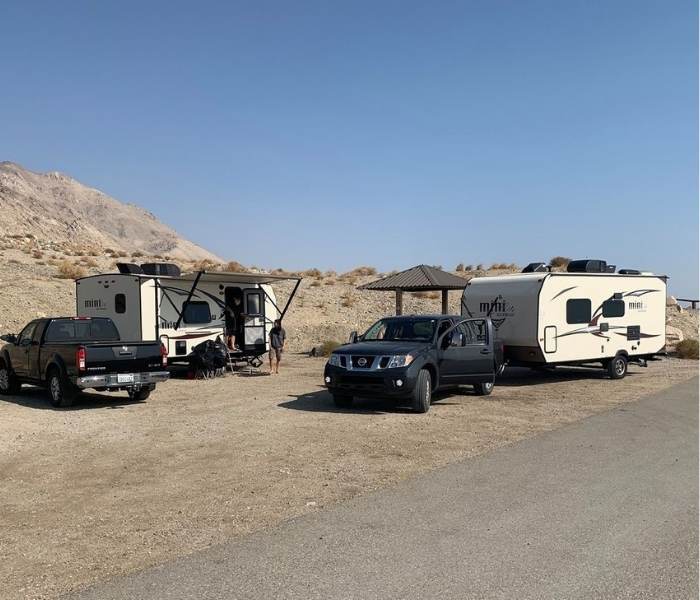
You can head deeper into the wilderness to discover new levels of solitude. Boondocking opens up unparalleled access to some of the most beautiful areas reachable by car.
Rest easy far from home with the knowledge that you have a limitless power supply strapped to the roof of your RV.
3: Your energy supply Will Be Built to Last
You won’t find yourself constantly switching up your solar system. Once hooked up, you can expect your solar panels to last up to 30 years. Your panels may outlast your RV.
That means investing in solar panels pays off in decades of free energy. If you plan on dedicating the next years of your life to time in your RV, it’s a no-brainer to take the plunge and begin harnessing the power of the sun.
Reasons You Shouldn’t Use Solar Power On Your RV
Don’t think that powering your RV with solar power is a simple task. There are several hardships any solar owner must endure to reap the benefits, and for some RVer’s, these negative factors could outweigh the benefits.
Take a look at some of the drawbacks of solar power and decide if it’s right for the RV experience you seek.
1: Solar is not the most straightforward solution
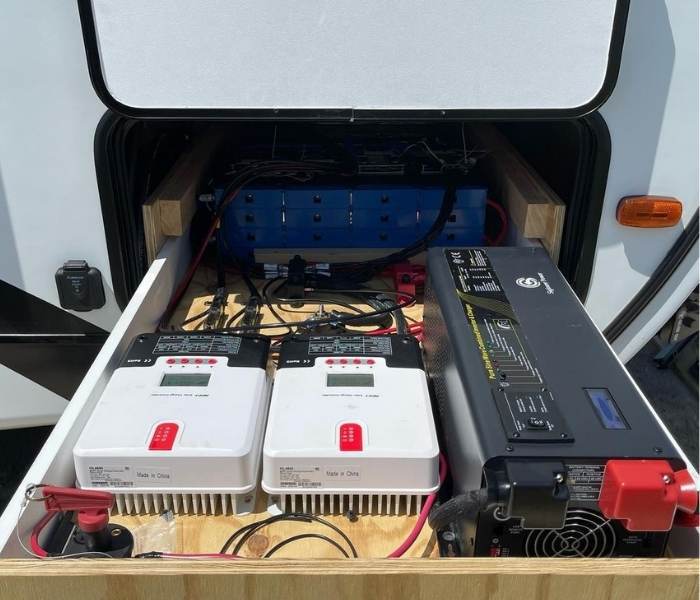
If you’re looking for a cheap trick to fix your battery woes, you should look elsewhere.
While costs are coming down, most comprehensive solar systems are not affordable. Once the parts arrive, the trouble begins, as most RV owners install their own setups.
Depending on your power needs, you may need to wield multiple panels and multiple batteries to start your gear.
2: Where You Can Go Depends on the Weather
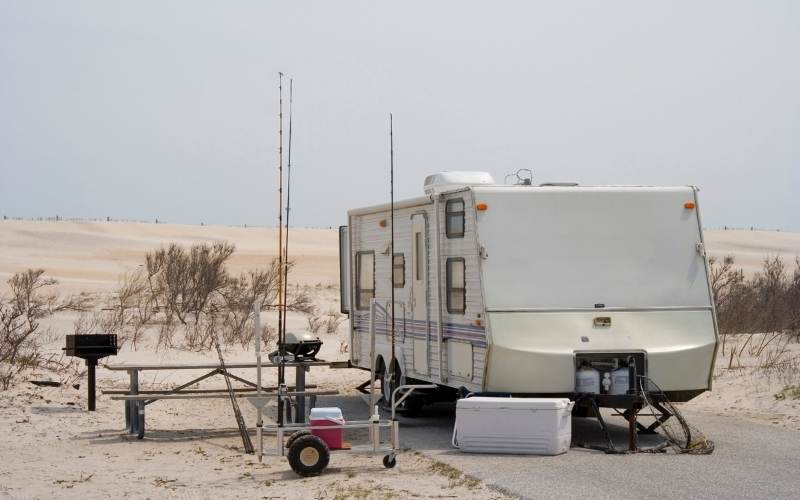
The obvious issue with solar panels is that they won’t work without the sun. New technologies allow high-end solar equipment to draw a charge on cloudy days, but it’s not the same flow as a sunny one.
Rainy days are a double negative, as you spend more of your time inside your RV, likely using power sources, and you won’t be recharging.
A lesser-known facet to this problem is when there is too much sun. There’s nothing worse than coming back from a day at the beach to a hot car, and it seems easy enough to park your RV in the shade to beat the heat.
As soon as leaves get in the way of your solar panel and the source, you won’t be generating much power.
Factors To Consider Before Adding A Solar-Powered System To Your RV
While weighing out the pros and cons of upgrading your RV with solar power, it is essential to understand some misconceptions about the option.
These important facets of solar technology can make or break a weekend in the woods.
1: Your Power is Still Only as Good as your Battery Bank
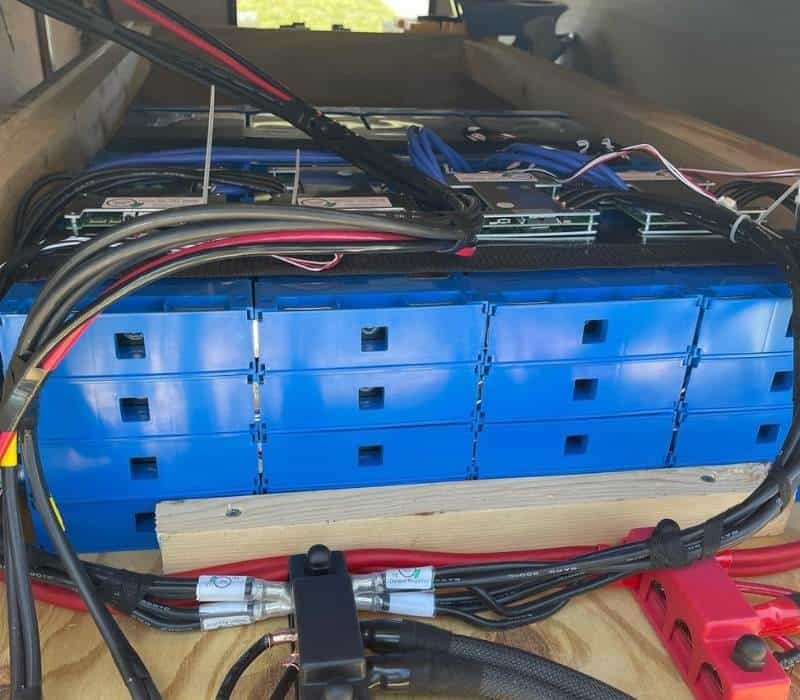
No matter how many solar panels you install, you can’t charge your batteries more than they can hold.
Your plug dies as the sun goes down, and it’s up to your battery bank to get you through the night.
It is commonly recommended that you upgrade your battery along with your solar panels to ensure all that power isn’t going to waste.
Some companies provide solar-ready batteries designed to get maximum benefits out of being paired with renewable energy sources.
2: You Can Equip Multiple Panels
Just like you can link up two separate batteries in parallel, multiple solar panels will double your energy collection abilities. Each panel doesn’t need a separate battery or charge controller.
If you find one solar panel doesn’t quite get the job done, you can add on to your system without having to start from scratch.
3: Does Solar Power suit your energy needs?
Now that we understand solar power only charges your battery bank, ask yourself what your battery bank will be charging.
The maximum electrical load your rig can support will not be affected by the amount of solar on your roof. Instead, solar power involves extending your battery capacity.
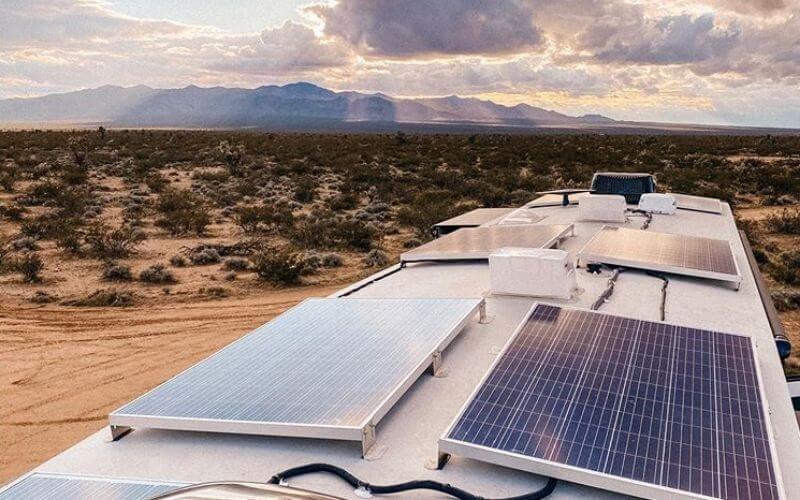
No matter how much money you pour into your RV solar power, you won’t be able to support the highest energy suckers.
Air conditioners and heaters are common examples of devices that ask for more than solar power can provide.
Related: How To Power An RV Air Conditioner With Solar
A solar bank capable of running a refrigerator 24/7 will require a system that can take a large load.
A 130 amp hour fridge would require the services of 700 ah of lithium batteries, as well as 1000 watts of solar panels. These components are more accessible than ever but still need heavy investment.
Examine your energy needs. If you don’t expect to operate high energy cost devices, solar power is more than capable of powering your RV
3: Cost to Install Solar Panels on an RV
As we showed above, a portable solar panel that boosts your RV’s battery bank can be yours at a much lower price than a generator.
However, if you want a comprehensive solar system that can provide constant power, things get a bit more complicated.
Financial Costs
The parts will run you back anywhere from 1,500$ to 15,000$, depending on your power demands.
RV solar Installation requires several key components, like circuit breakers, connectors, and wires, that add up. The price will directly relate to how much power your panels are capable of providing.
Time Is Money
Once you’ve paid all the bills, the real fun begins. Installing any electrical components is a complicated maneuver.
Prepare to spend quality time working on your RV for the next few weekends or another hefty chunk of change on a professional installation.
Payoff
The money, sweat, and tears can be a daunting task, but your up-front cost won’t ever be repeated.
Once you connect your battery to a solar panel, it will automatically start drawing power to your vehicle the moment the panels hit the sun. You can kick back and let your RV spend its days photosynthesizing.
Things To Try Out Before Committing Either Way
Any RV owner will have a long list of potential upgrades to their second home. Solar Power doesn’t need to be the first issue you take care of when you drive off with your new RV.
You can take it out for a few spins and learn what you want from your RV before you take the solar pledge.
1: See How Long Your Battery Lasts On Its Own
Charge your existing battery to its fullest, and then test its limits in a safe environment. It is always better for the battery to die in the driveway rather than in the woods.
If you find your house battery can provide days of power, you may not need much more than that.
Turn on a few vital electrical components of your RV and see how easily they function. Try to monitor your charge level, so you don’t completely drain the battery.
2: Try Out All Sorts of Camping Options to Find What You Enjoy
Your first few forays into the wild should involve getting your feet wet at various locales. You can’t know what you like until you try it, so try everything.
Spend a weekend camped in an RV park, and spend the next weekend deep in isolation. You may find you prefer the communal aspect of camping grounds or the quiet mornings spent alone in the wild.
Once you understand what you like, you can build your RV around your preferences.
These Folks May Be Better Off Investing Elsewhere
For a small section of travelers, Solar Panels won’t fix their energy needs and will end up being an expensive windbreaker on the roof of your RV.
High Energy Campers
If you find the RV’s air conditioner switched on more often than not, your system is too much for solar energy to handle.
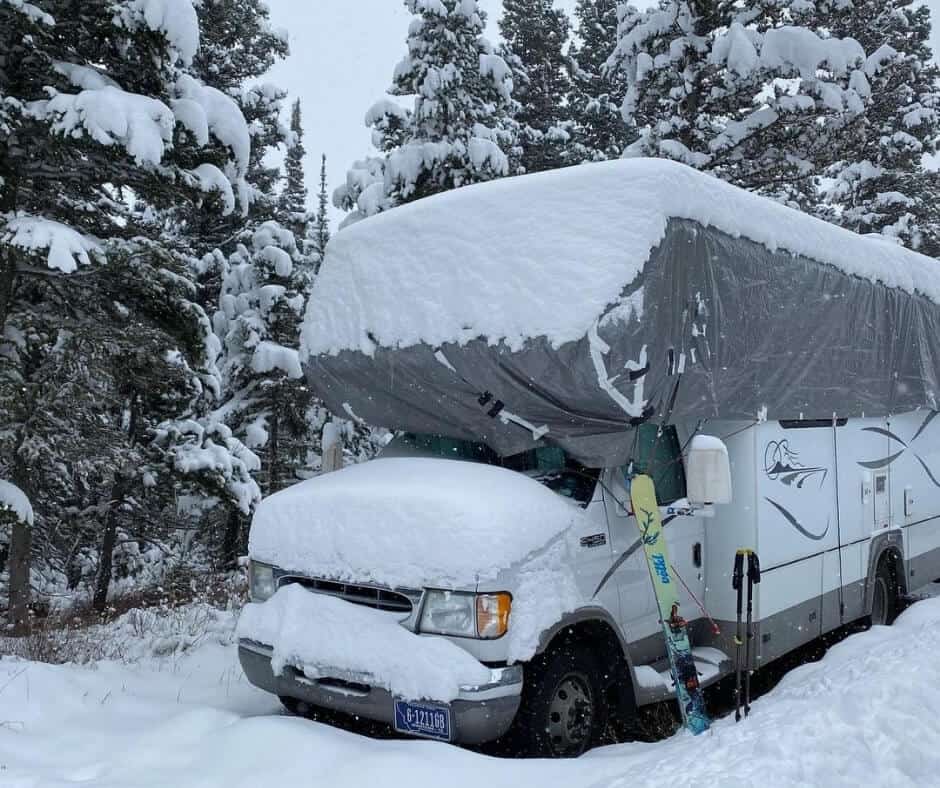
Equipping solar panels requires a more nomadic RV experience, and you’ll have to avoid the hottest or coldest climates.
Do You Find You Spend The Most Time at an RV Park?
There’s a large subsection of RVers attracted to the community feel of an RV park.
If you’d rather end your days having a beer with the next-door neighbors, you’ll probably find yourself parking in established campgrounds often.
These campgrounds have plenty of ways to charge your battery without you resorting to the sun.
Only Headed Out for the Weekend?
If you don’t plan on staying away from home for too long, your battery may not need back upcharge. A 4-hour drive will provide a full charge to your house battery, and any half-decent battery system can support your electric use for a day or two.
Solar doesn’t give your batteries superpowers, and if your battery bank can handle the job on its own, there’s no need to bust out the solar machinery.
Is Adding Solar to Your RV Worth It?
If you plan on spending multiple days away from a plug-in source at a time, hooking up RV solar power is a necessary expense to extend the lifespan of your adventure.
While the power source has significant flaws, anyone looking to spend a week in the woods should provide themselves the security of a solar power system.
Several options that are cheaper at first glance will get more expensive in the end. You’ll have to constantly provide fuel for a generator, and the loud sound of a powerful generator in operation can get you kicked off many boondocking locations.
There’s no such thing as a free plug-in. Camping fees can quietly add up over time, and if you’re in your RV for the long haul, the electrical costs will eventually overtake the price of a solar panel.
Solar is a hefty undertaking but pays off if you enjoy getting to the edge of society and pushing your RV to explore more.

